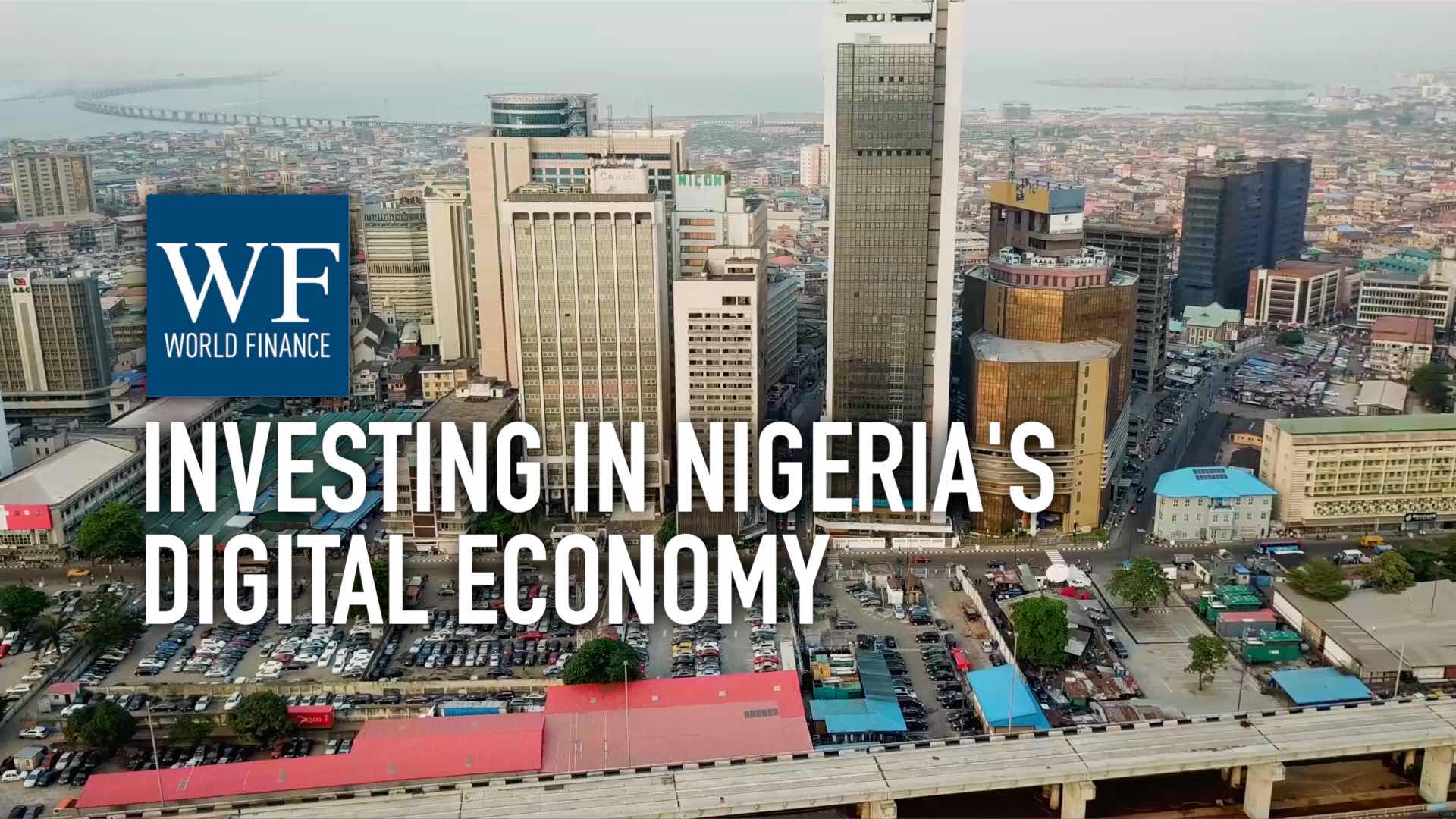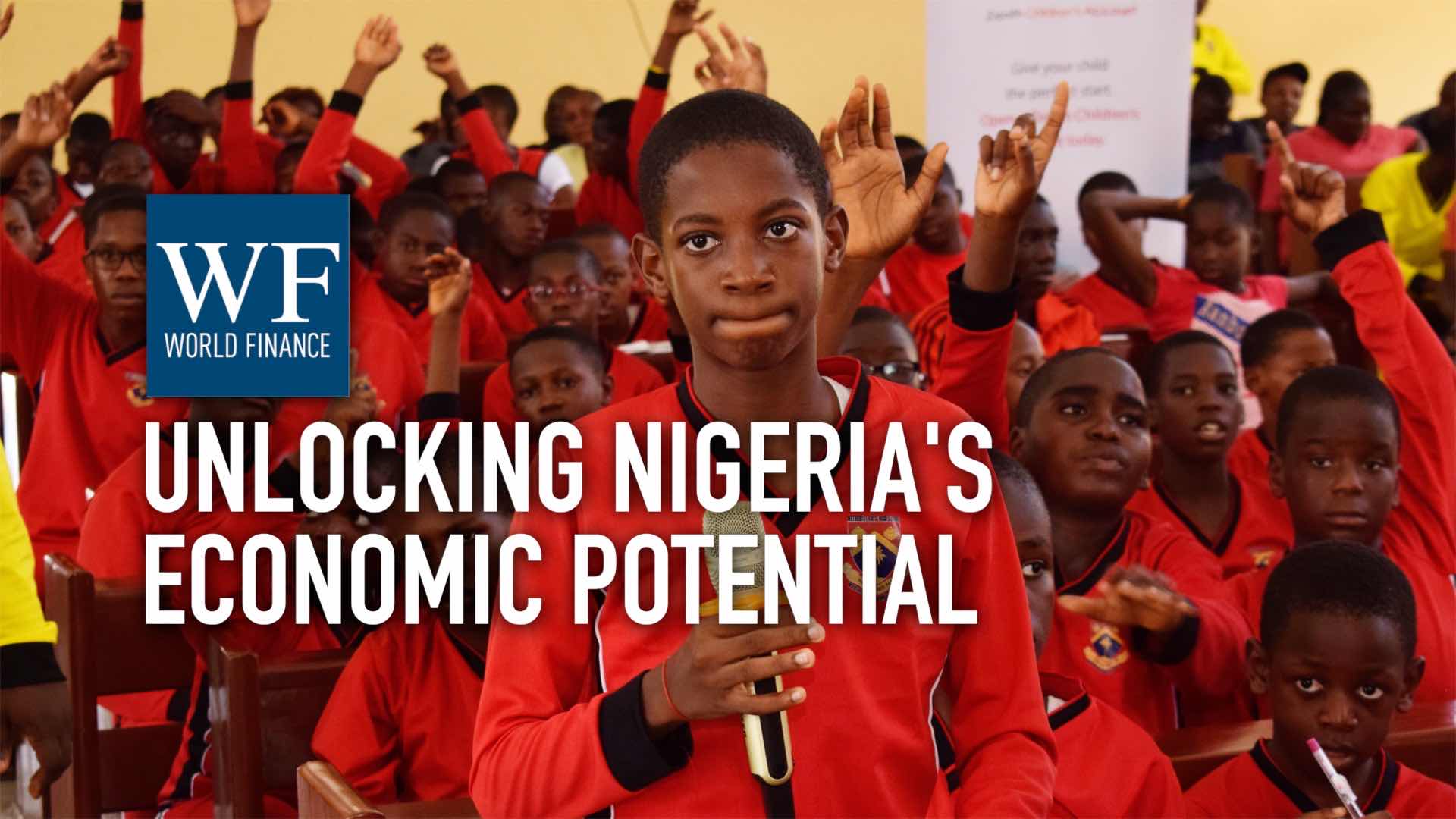Nigeria’s young, active workforce ‘will continue to grow and create wealth’
Long-term investment in Nigeria will pay dividends thanks to FDI reforms and thriving demography, says Ebenezer Onyeagwu
Related:
Transcript
Nigeria’s economy bounced back from its COVID-19 slump with growth of 3.4 percent in 2021. Zenith Bank group managing director Ebenezer Onyeagwu joins World Finance to discuss the country’s economic health, the government’s latest development plan, and the many opportunities available in Nigeria for investors who understand the country’s long-term needs and potential. Watch the other parts of this interview in our Zenith Bank playlist:
World Finance: What’s your view on the country’s economic health?
Ebenezer Onyeagwu: I’m very optimistic about the economic health of Nigeria. That’s because Nigeria is a huge market. You have 200 million people, and 50 percent of that population, that demography, is below age 30.
You are talking about an active, consuming, valuable workforce – you can’t beat that! You can’t get that anywhere.
Now in terms of economic development, if you look at how we came out of recession, what comes to mind is the contribution of agric, ICT, services, fintechs. These are sectors that are thriving.
There are quite a number of entrepreneurs who are innovating and digitising every aspect of human engagement. So for me I am quite optimistic.
And again, the government has come up with a lot of reforms. The national economic development plan emphasises that the country requires close to $800bn for us to improve the infrastructure in the country in the next five years. That will be a difficult thing to achieve, because we will need for Nigeria to really realise its potential, we need FDIs to come in.
World Finance: How attractive is Nigeria to foreign direct investors? There’s a lot of risks that are associated with Nigeria – security risks especially with infrastructure – what’s your view on that?
Ebenezer Onyeagwu: Thank you Paul – in terms of security risk, there’s insecurity everywhere. Different regions of the globe have their own different security challenges. I can admit that! Yeah we have our own, but it’s being addressed.
If we invite the other challenges we see, they represent opportunities for investment. For instance, we don’t have – if we are looking at roads, we don’t have good roads. We don’t have a rail system which will facilitate human traffic and also movement of light goods here and there.
We also need investment in healthcare. The amount of outflow from Nigeria to other parts of the globe in terms of medical tourism is huge! But if we have investment in healthcare, we will be able to save a lot of foreign exchange for the country.
And, if you look at agric – Nigeria, if you fly across the country, you see good arable land, that, oh, we need to do forming that you are seeing is subsistence level! We need to mechanise it. We need investment. Nigeria can become the food basket, the home for organic food the world!
I can go on and on. But what you see is that massive investment will need to be put into the country, but whoever is coming should be long term. If you are not long term, I mean, if you take a short term horizon in Nigeria, you will not make money. In fact you will create volatilities for everybody, including yourself.
I mean how come in Nigeria, if you look at the return – Zenith Bank is just 32 years. It was started by Mr Ovia in 1990. We took the equivalent of $4m. But today we have shareholders fund of over £300bn. I mean, that’s coming from Nigeria! We continue to grow and create wealth.
There are quite a lot of incentives. The government has also come up with a new finance act that has made the tax regime a lot more effective for corporates.
If you are looking for the destination of the next intelligent properties or building you have, it has to be places like Nigeria, and Africa.
Maybe what we need to do is stronger advocacy, in order to create the awareness for people that the country is not as bad as it’s been perceived to be.

 Zenith Bank is ‘at the forefront of encouraging Nigeria’s upcoming digital economy’
Zenith Bank is ‘at the forefront of encouraging Nigeria’s upcoming digital economy’ From zero to hero: with support for SMEs to MNCs, Zenith is unlocking Nigeria’s potential
From zero to hero: with support for SMEs to MNCs, Zenith is unlocking Nigeria’s potential
